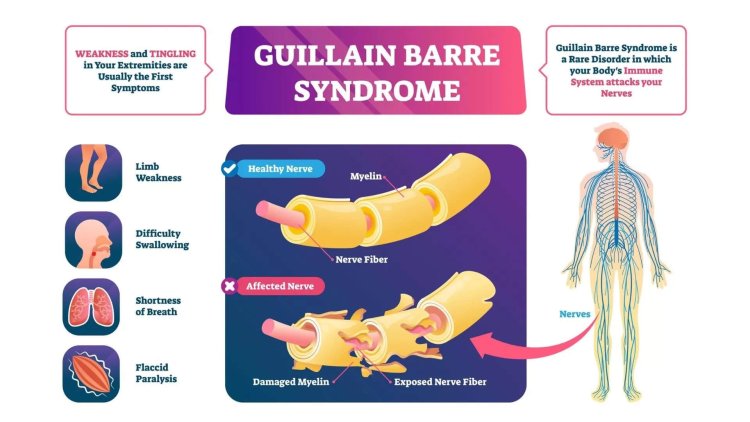Understanding Guillain Barre Syndrome
Guillain-Barre syndrome (GBS) is a rare condition where the body's immune system mistakenly attacks the nerves in the peripheral nervous system, which connects the brain and spinal cord to the rest of the body.

Guillain-Barre syndrome (GBS) is a rare condition where the body's immune system mistakenly attacks the nerves in the peripheral nervous system, which connects the brain and spinal cord to the rest of the body. This can result in muscle weakness, tingling, and numbness. In severe cases, it can lead to paralysis. According to the Centers for Disease Control and Prevention, GBS affects only a small number of people, with around 3,000 to 6,000 cases reported each year in the United States.
The exact cause of GBS is still unknown, but it is believed to be triggered by infections. These infections can include diarrhea or respiratory illnesses, viral infections such as the flu or infections caused by viruses like cytomegalovirus, Epstein Barr virus, Zika virus, or others. In rare cases, GBS may occur after receiving certain vaccines, although the benefits of vaccination outweigh the risks. Additionally, infection with Campylobacter jejuni, which causes diarrhea, is one of the common causes of GBS.
Symptoms of GBS typically last for weeks and can lead to paralysis if the condition worsens. The initial symptoms usually involve weakness or tingling in the legs, which can then spread to the arms and face. In severe cases, speaking and swallowing difficulties may occur, which can be life-threatening and require immediate medical attention. While most people recover fully from GBS, some may continue to experience weakness. Unfortunately, in some cases, complications can arise, such as paralysis of the muscles controlling breathing, blood infections, lung clots, or cardiac arrest, resulting in a small percentage of deaths.
Currently, there is no specific cure for GBS, but patients should be closely monitored and hospitalized for attentive care. Treatment typically involves supportive care, including monitoring heartbeat, blood pressure, and providing ventilator support for those with breathing difficulties. Immunotherapy, which involves suppressing the immune system to prevent further nerve damage, is a common treatment option. Plasma exchange is often recommended within 7 to 14 days after the symptoms appear to help manage the condition.
In conclusion, Guillain-Barre syndrome (GBS) is a rare neurological disorder characterized by the immune system attacking the peripheral nerves. It can cause muscle weakness, paralysis, and other symptoms. Although the exact cause is unknown, early diagnosis and treatment are crucial in managing the condition and preventing it from progressing to more severe stages.
What's Your Reaction?
















